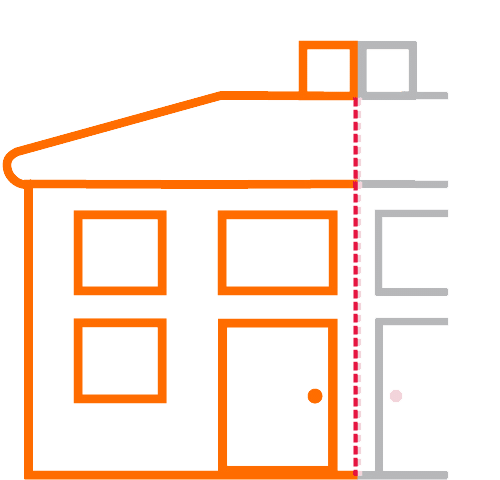LongTerm Savings Through Efficient Cavity Wall Insulation
Ensuring efficient cavity wall insulation is a crucial investment that can lead to long-term savings for homeowners. By properly insulating the cavities within the walls, households can significantly reduce heat loss during the colder months and limit heat gain in the warmer seasons. This means that less energy is required to maintain a comfortable indoor temperature, resulting in lower utility bills over time.
Professional cavity wall insulation not only helps in energy conservation but also contributes to a more sustainable living environment. By minimising the need for excessive heating or cooling, homeowners can lower their carbon footprint and play a part in reducing overall energy consumption. Additionally, the financial benefits of reduced energy bills make efficient cavity wall insulation a cost-effective solution in the long run.
Calculating Energy Reduction and Cost Benefits in the Long Run
The decision to invest in professional cavity wall insulation can result in significant long-term savings for homeowners. By effectively insulating the walls of a property, energy consumption for heating and cooling purposes can be reduced, leading to lower utility bills over time. This energy efficiency enhancement not only benefits the environment but also provides financial relief for residents in the form of reduced energy costs.
Calculating the energy reduction and cost benefits of cavity wall insulation involves a thorough assessment of the property’s specific requirements. Factors such as the size of the property, existing insulation levels, and local climate conditions are considered to determine the potential energy savings and cost-effectiveness of the insulation installation. By accurately quantifying the long-term benefits of cavity wall insulation, homeowners can make informed decisions that not only improve the energy efficiency of their property but also contribute to their financial well-being.
Impact of Poor Cavity Wall Insulation on Property Value
Poor cavity wall insulation can significantly impact the value of a property, causing potential buyers to reconsider their investment. When a property lacks proper insulation, it becomes less energy-efficient and may lead to higher utility bills for the new owners. This additional cost burden could deter buyers looking for a more sustainable and cost-effective option, ultimately diminishing the property’s market value.
Moreover, properties with poor cavity wall insulation often receive lower valuations due to their reduced energy efficiency ratings. The Energy Performance Certificate (EPC) is a mandatory document that outlines a property’s energy efficiency, and inadequate insulation can result in a lower EPC rating. This lower rating not only decreases the property’s value but also narrows the pool of interested buyers who prioritise energy efficiency and sustainability in their housing choices.
Recognising the Influence of Insulation on Property Marketability
The marketability of a property is significantly influenced by the quality of its insulation, particularly cavity wall insulation. Potential buyers are increasingly aware of the importance of energy efficiency in reducing utility bills and carbon footprint. Properties with professionally installed cavity wall insulation are perceived as more attractive and environmentally friendly, leading to higher market demand.
Moreover, properties with inadequate insulation can often face challenges when it comes to attracting buyers. Poor insulation not only affects energy efficiency but also contributes to discomfort for occupants due to temperature fluctuations and dampness. As a result, properties with subpar insulation may linger on the market for longer periods and may require price reductions to incentivise potential buyers, ultimately impacting the market value of the property.
Enhancing Indoor Comfort with Proper Cavity Wall Insulation
Professional cavity wall insulation plays a vital role in enhancing indoor comfort within residential or commercial buildings. By effectively insulating the walls, the temperature regulation within the property becomes more stable and consistent. This means that during cold winters, the insulation helps to retain heat inside, creating a cosy and warm environment for occupants. Conversely, in hot summers, cavity wall insulation helps to keep the interior cooler by acting as a barrier against the external heat, ensuring a comfortable living or working space all year round.
Moreover, proper cavity wall insulation also aids in controlling humidity levels within the building. By reducing moisture penetration through the walls, insulation prevents dampness and mould growth, which are not only unpleasant but also detrimental to respiratory health. The regulated humidity levels contribute to a healthier indoor environment, making the space more pleasant and conducive for occupants. Ultimately, investing in professional cavity wall insulation not only enhances comfort but also promotes overall well-being for those residing or working within the building.
Maintaining Optimal Temperature Levels and Humidity Control
Maintaining optimal temperature levels and humidity control within a property is paramount for ensuring a comfortable indoor environment. Proper cavity wall insulation plays a crucial role in regulating the temperature by minimising heat loss during colder months and heat gain during warmer seasons. This helps in creating a consistent and pleasant atmosphere throughout the year, reducing the need for excessive heating or cooling systems which can result in both energy and cost savings.
Moreover, by effectively controlling humidity levels through well-installed cavity wall insulation, the risk of dampness and mould formation is significantly decreased. Excess moisture in the air can lead to various health issues and damage to the property’s structure. Therefore, investing in professional assessment and installation of cavity wall insulation not only enhances the comfort of the occupants but also contributes to maintaining a healthy and sustainable living environment.
FAQS
Table of Contents
ToggleHow can professional cavity wall insulation assessment and installation help in saving money in the long term?
Professional cavity wall insulation assessment and installation can lead to long-term savings by improving energy efficiency, reducing heat loss, and decreasing energy bills.
How can one calculate the energy reduction and cost benefits of cavity wall insulation in the long run?
The energy reduction and cost benefits of cavity wall insulation can be calculated by comparing energy consumption before and after installation, taking into account the insulation’s impact on heating and cooling requirements.
What is the impact of poor cavity wall insulation on property value?
Poor cavity wall insulation can negatively impact property value by reducing energy efficiency, increasing maintenance costs, and affecting the overall comfort and marketability of the property.
How does cavity wall insulation influence the marketability of a property?
Proper cavity wall insulation enhances the marketability of a property by improving its energy efficiency, comfort levels, and overall appeal to potential buyers or tenants.
How does cavity wall insulation contribute to enhancing indoor comfort?
Cavity wall insulation helps in maintaining optimal temperature levels and humidity control, creating a more comfortable indoor environment for occupants throughout the year.
Related Links
Cavity Wall Insulation: Cost and Savings Analysis in the Great British Insulation Scheme
Key Considerations for Selecting Cavity Wall Insulation Materials





